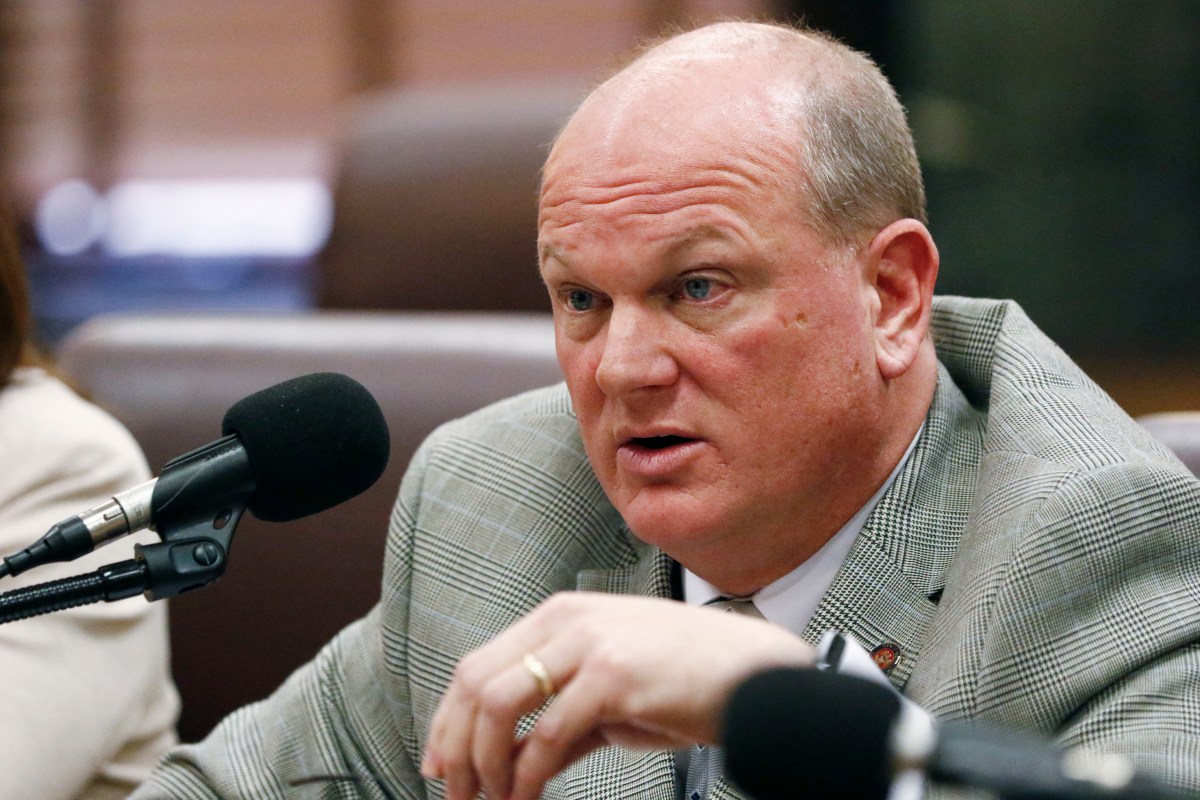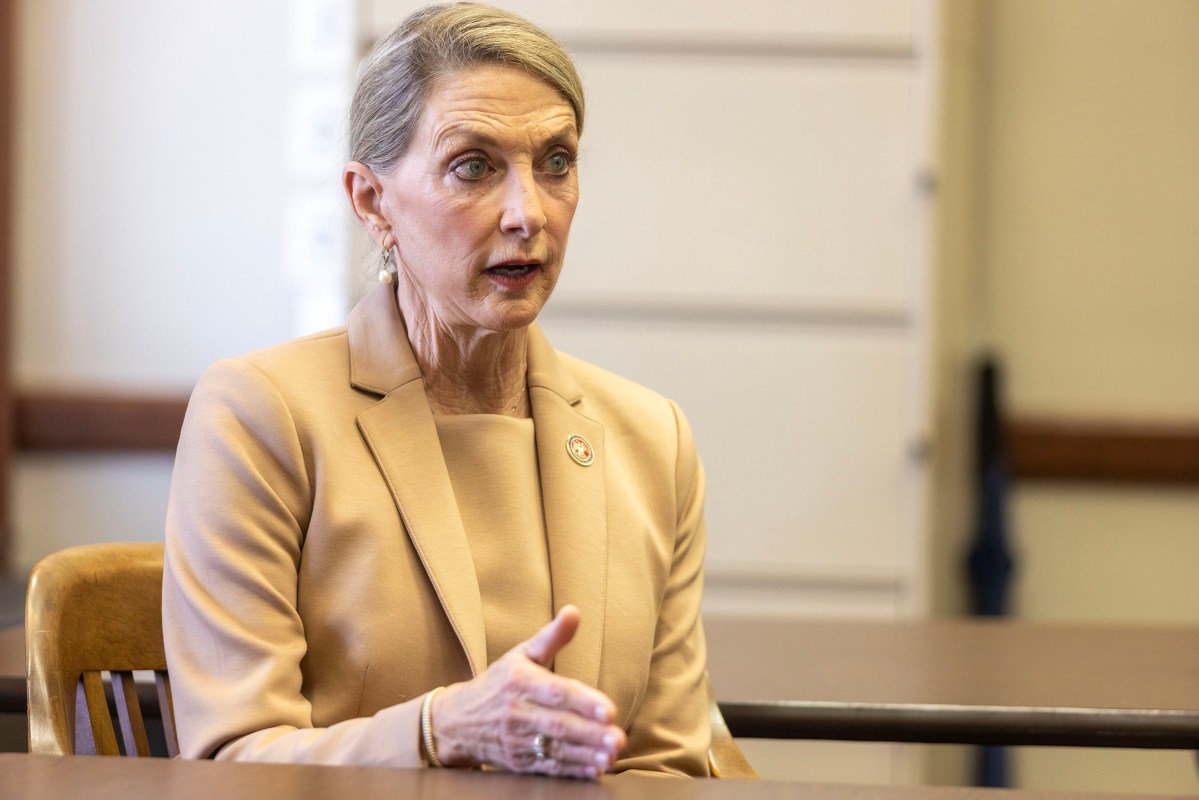Bill to correct outdated law barring IVF children from inheritance passes committee at eleventh hour
by Sophia Paffenroth, Mississippi Today April 3, 2024
A bill that would designate children conceived in unique circumstances – via assisted reproduction after the death of one parent – as rightful heirs of their biological parents is moving forward.
The bill passed the Judiciary A committee late on deadline day and now heads to the Senate floor, where it has died on the calendar the last two years. It passed the House unanimously in mid-March.
House Bill 1542, authored by Dana McLean, R-Columbus, would change inheritance law so a child conceived via in vitro fertilization within 36 months of one parent dying is considered an heir of that parent – as long as the deceased parent consented to have his or her genetic material stored and used. This would apply to cases where a woman decided to continue implantation of an embryo after her husband’s death, as well as cases where a man decided to continue with an embryo through surrogacy after his wife’s death.
Currently, these children are not considered heirs of the deceased parent in Mississippi and therefore do not receive an inheritance because the law was written before assisted reproduction technology existed.

State Sen. Brice Wiggins, R-Pascagoula, during a Senate Corrections Committee meeting on Feb. 13, 2020, at the Capitol in Jackson. (AP Photo/Rogelio V. Solis)
Sen. Brice Wiggins, chairman of Judiciary A, met Tuesday morning with McLean’s constituent, Katie Studdard – the woman whose personal story inspired McLean to author this bill for the last five years. Hours after Mississippi Today published a story featuring Studdard and her daughter last week, a lawmaker reached out to Studdard saying Wiggins wanted to meet with her, Studdard said.
Wiggins, who for the past two years has allowed similar bills to die before bringing them to the full Senate, agreed at the last minute to hear testimony from Studdard during a late committee meeting at 5 p.m. on Tuesday, a legislative deadline day.
McLean said she is relieved the bill passed and expects lawmakers to work on it in a timely manner – given the fact that they’ve had years now to study the bill and address their concerns.

Rep. Dana McLean speaks with a Mississippi Today reporter at the Capitol in Jackson, Miss., Thursday, March 7, 2024.
“I’m happy that Katie was able to appear before the Senate committee yesterday so that the members could directly hear her story,” McLean said. “We are relieved that it passed through committee, even at the 11th hour. Hopefully, the concerns raised by the members can be worked through before the floor deadline so the bill can finally pass this session.”
Wiggins told Mississippi Today that Studdard shared with him what other states are doing and information from her attorney about what would need changing in Mississippi, and as a result, the bill could fare differently this year. He voiced support for the spirit of the bill and said he intends to work with Sen. Chuck Younger, a Republican who represents Studdard’s district, on the language of the bill.
“For whatever reason, the bureaucracy of the Social Security Administration is telling her and others that she can’t get survivor benefits because for whatever reason, because of IVF, that their child is not who they say she is,” Wiggins said. “As far as I’m concerned, that’s all crazy … Senator Younger has stepped up and will help and the committee members have said that they will help to try to get the bill in a position it can pass the floor.”
However, Wiggins did not commit to bringing the bill up on the floor this year and said the bill would need the “proper amendments” before he would bring it to a vote in the Senate. Similar bills passed out of committee the past two years, but Wiggins did not bring them forward for a vote in front of the full Senate.
While Studdard’s circumstances might seem rare, they are increasingly more common in a world where women are having children later in life and families are becoming more reliant on assisted reproduction. Forty-two percent of Americans say that they have used fertility treatments or personally know someone who has.
Studdard, who lives in Columbus, started fertility treatments with her late husband, Chris McDill, before he died of cancer. She did not have success with the embryos while her husband was alive but decided to continue trying for a baby after her husband’s death. She conceived her now 5-year-old daughter Elyse a year after her husband died.
When she tried to register her daughter at the Social Security office, she was told – after six months of waiting – that the state didn’t recognize Elyse as the legal child of McDill because she was conceived via IVF shortly after McDill’s death.
That meant that Elyse, the biological child of McDill, did not qualify for the survivor benefits she would have received had she been considered her father’s legal daughter, and Studdard did not qualify for the “mother benefits” she would have received had she been recognized as caring for a legal child of McDill.
This is the fifth year McLean has introduced a bill to address the issue of inheritance for posthumously conceived children – those born after one parent’s death – as 27 states have done.
The last five years have been difficult for Studdard to make ends meet as a middle school art teacher without those monthly social security payments – especially after spending tens of thousands of dollars on fertility treatments.
“I wiped out our complete life savings to have this baby,” Studdard said. “For them to come back and say ‘you know what, we’re not denying that he’s the biological father, but we’re not going to say he’s the legal father,’ because God forbid they give that child anything that she’s owed.”
Studdard has shared her story dozens of times over the last few years with lawmakers. But she said she won’t stop until the law is amended.
“I’m never going to give up, you know, because it’s for my child.”
This article first appeared on Mississippi Today and is republished here under a Creative Commons license.![]()




